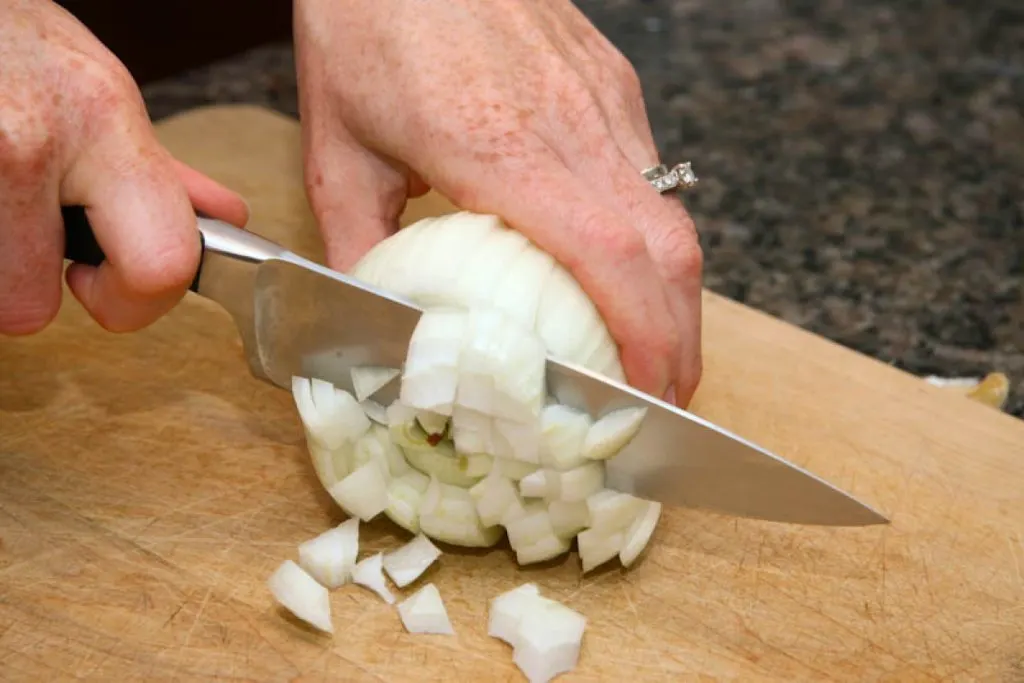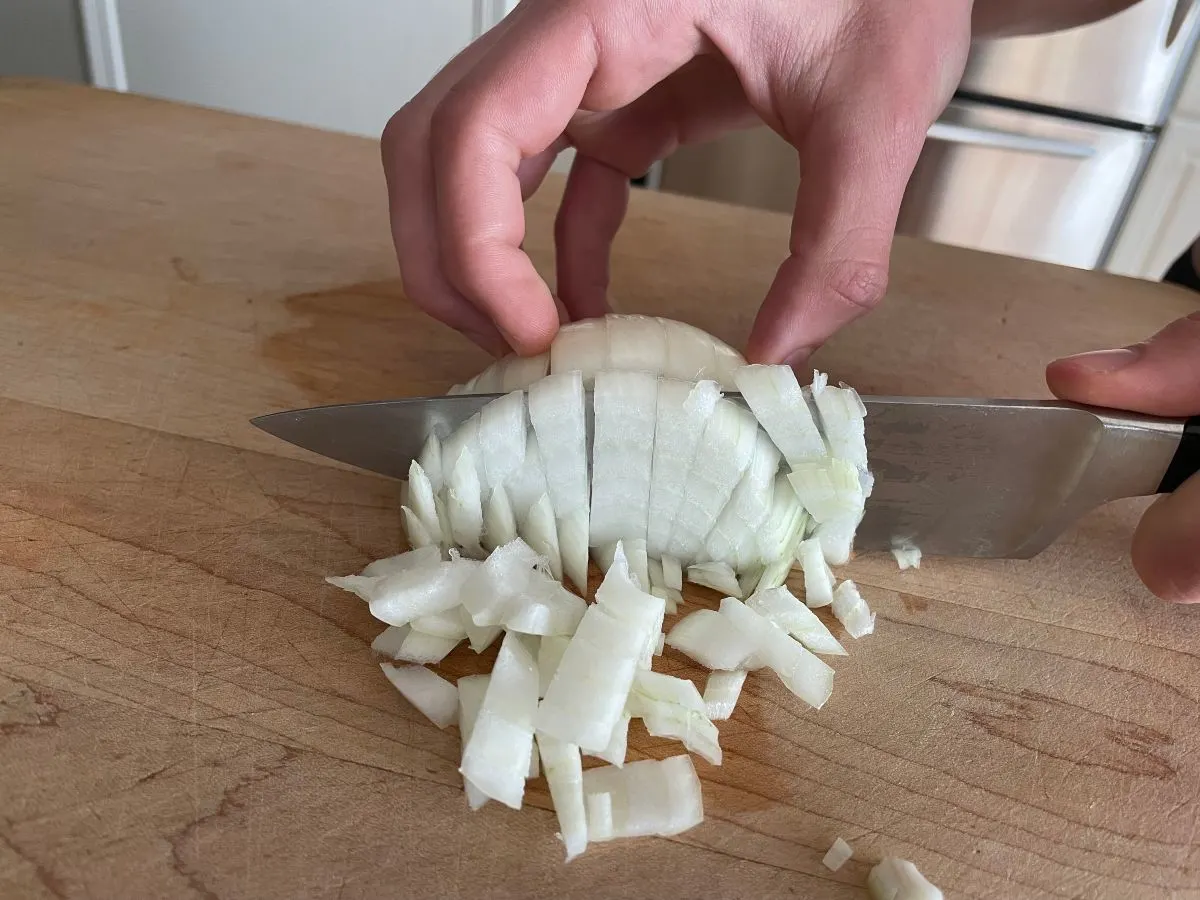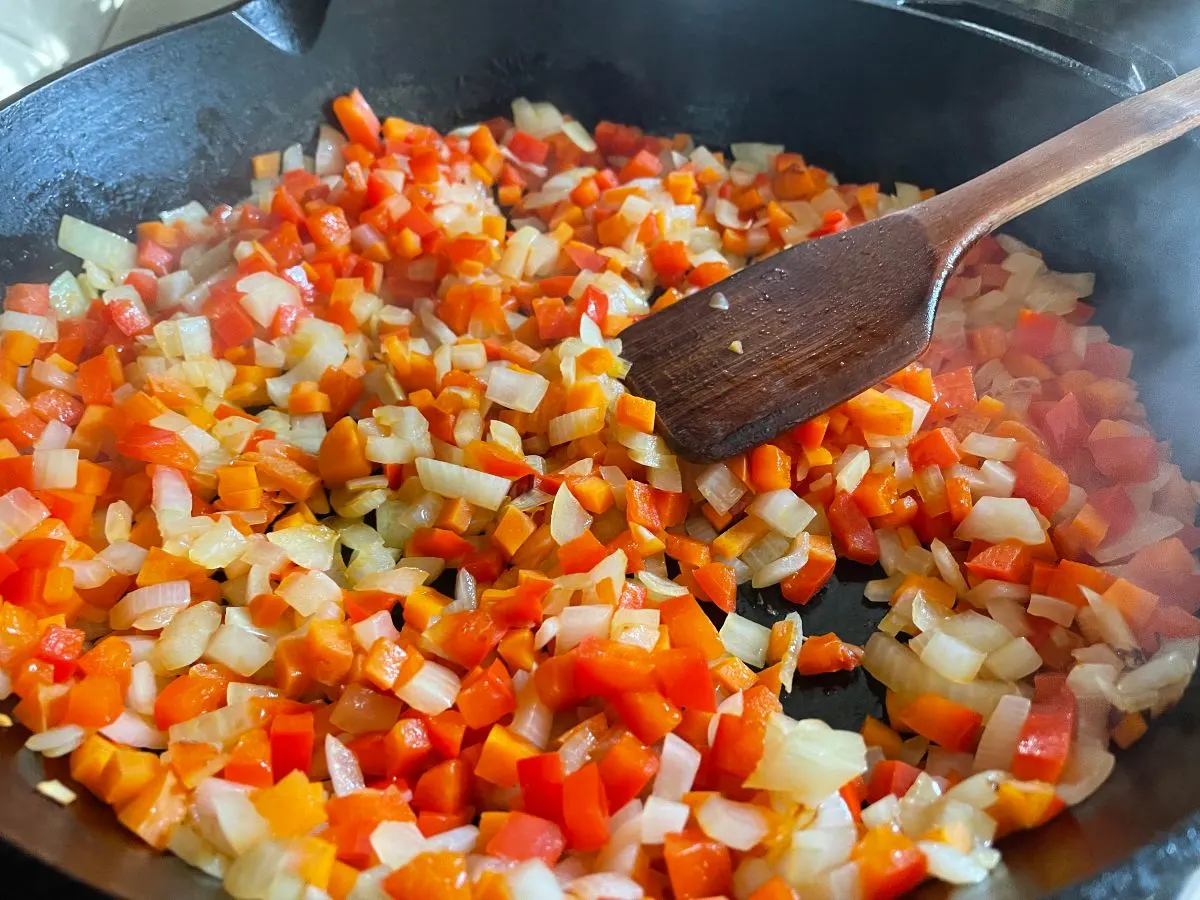Cooking classes, online tutorials, and cookbooks filled with diagrams and step-by-step instructions are all wonderful ways to learn new cooking skills. But the truth is, if you want to become a natural and efficient home chef, there is only one path: cooking more. That’s right, regular, daily cooking is what truly makes you a better cook.

Why Regular Cooking Makes You a Better Cook
I once heard the cookbook author and food writer Mark Bittman compare learning how to cook to learning how to drive.
When you are learning to drive, you can’t have any distractions and every single action and movement is almost overwhelming. But, as you become a more comfortable and confident driver, some of it becomes more natural and it becomes easier to make decisions.
The same is true with cooking, he said. As you do it more and more, you become increasingly comfortable and familiar with certain meal prep tasks – you instinctively know when the oil is heated and how many vegetables you can chop in the time it takes the onion to sauté. And, over time, you evolve into a more confident and efficient home chef.
When I think back over my own cooking journey, I definitely feel that this analogy speaks to my experience. For years, I was only comfortable making a very specific set of recipes, almost all of which were quite complicated. Because of this, I needed a long time to pull them together and often felt overwhelmed. It wasn’t until I had a family of my own, people depending on me in order to be fed on a regular basis, that I really began to expand my horizons, gain confidence, and become a better home chef.
It was the regular, daily cooking, not the fancy complicated meals that made me a better, more efficient home chef.

Skills You Hone Through Daily Cooking
There are many different skills that you will improve through regular meal preparation. Here are some of the ones that I think are both most important in terms of helping you to become more efficient and confident in the kitchen. I know that when I am learning or working on strengthening a skill, I find great satisfaction and motivation in thinking back to how to I started and seeing how far I have come. So, as you review this list, I invite you to consider which of these you have already mastered or improved upon and which still need more work. My hope is that by highlighting the skills and your progress thus far, you will find motivation to keep on cooking regularly.
Reading a Recipe
There is an evolution that comes with following a recipe. When you first start using recipes, following them to a tee and doing everything in the order prescribed by the author feels essential. Over time, though, that starts to shift.
First, you become more comfortable with the terminology in recipes and don’t have to think as hard about what it is you are supposed to be doing. Then, you start to see the standard practices that are common throughout recipes and can begin to feel like you can flow more easily through the meal prep process. And finally, you begin to find that as you read through the recipe, there will be opportunities to change the order of operations so that the cooking goes more smoothly to match your own pacing and skills. (For example, instead of chopping all of the ingredients first, I now will often only chop the first few ingredients I will need, and then will prep the others as the first ingredients cook.) All of these evolutions lead to smoother and better meal preparation.
Chopping
Taking knife skills classes or watching demonstrations is key to learning the best and most efficient ways to cut and chop all kinds of foods and are great options for learning good form. When you get started with these skills, you will likely be slower than you would like. That is normal – after all, you are working on a new skill and are doing it with sharp objects!
But don’t lose hope because it really will pay off. Regular cooking is what will give you the muscle memory to be able to chop quickly, efficiently, and safely and, in the end, you’ll look back with great satisfaction at how far you’ve come!

Timing
When you first start cooking, the times that are shared in a recipe are essential. They help you to plan out your meal preparation, gauge when an ingredient is ready for the next step, and understand when dishes are done.
But, as you cook more and more, you will start to notice that your understanding of these things becomes more second nature. You’ll be able to feel when it is time to add the next ingredient – through sight, sound, smell, and some sort of unexplainable Spidey sense.
In addition, as you cook more and more you’ll have a better idea for how much time you, personally, need to complete certain steps. This is important because it means that you can prep and cook simultaneously, which will save you time!
Seasoning
I like to think of the seasoning levels that are shared in recipes as suggestions rather than gospel. After all, we all have different palates with unique preferences. As you cook more, you’ll be able to read a recipe and say to yourself, I’ll want to double that chili, cut that cinnamon, increase the salt, etc.
You will also start to learn what seasonings you might want to add to bring a recipe even more to life for you. Perhaps a squeeze of lemon juice, a dash of hot sauce, or a sprinkle of Parmesan will take the recipe from good to great – and the more you cook, the more natural these additions will become.

A Final Thought
One of the things I most love about cooking is that the learning never stops. I am always discovering new ways to be a better, more efficient cook. Even today, my skills continue to improve with practice. There are always new cuisines and styles of cooking to explore. And with each of these explorations and improvements I get a great sense of satisfaction and have even more fun in the kitchen.
This is why I am so passionate about what we are doing here at The Scramble. It is my hope that by providing you with simple and delicious recipes and lots of cooking tips, tricks, and instructions, you can come back to time and time again. Our goal is to make regular cooking an accessible and manageable part of your daily life, so that you can become a better, more efficient, and more adventurous chef.
Want more meal prep inspiration? Check out our post on How to Make Daily Cooking Easy!
I’d love to hear from you! Are you a Scrambler already? If so, have you found it has helped you to become a better cook? If not, then try our free trial to see how our simple, delicious recipes can help you to gain confidence in the kitchen and become a better cook!
